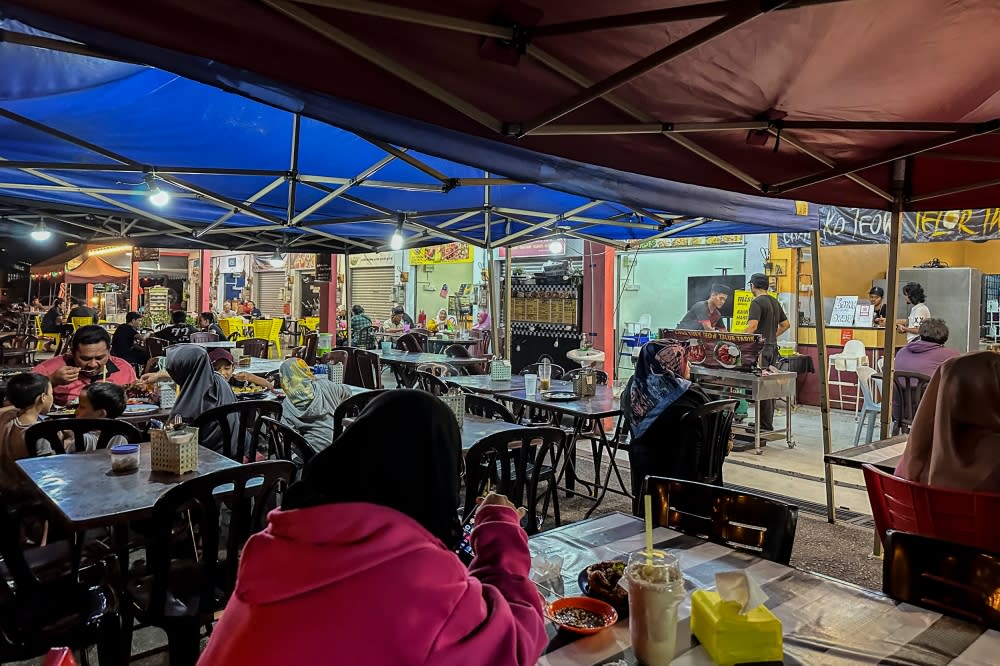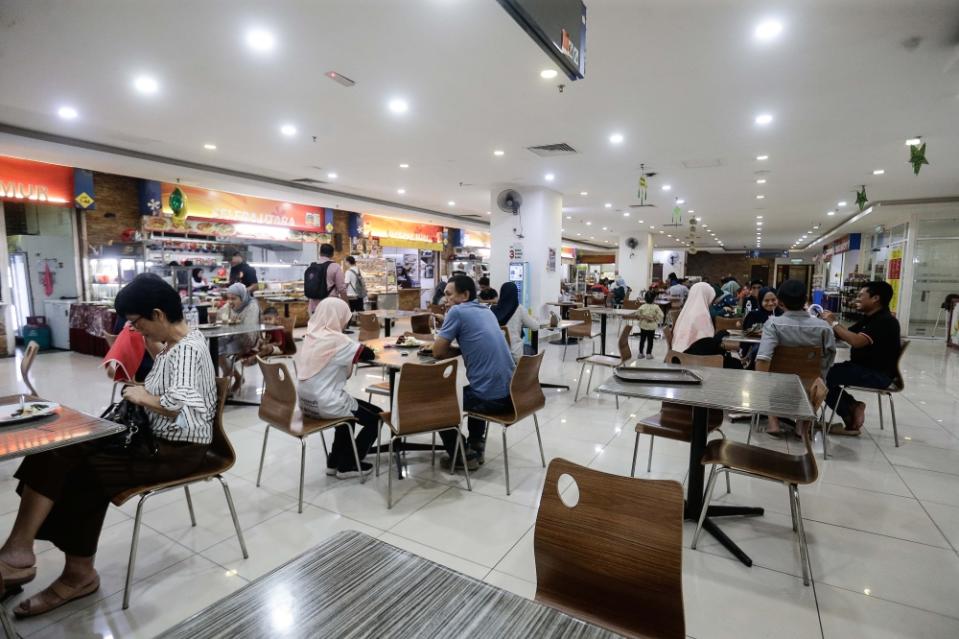Are Malaysians ‘addicted’ to eating out? For some in working class, commute and convenience make it the only option

KUALA LUMPUR, Sept 21 — The abundance and availability of food in Malaysia has made it convenient to dine out, with Economy Minister Rafizi Ramli conceding recently that the nation may be “addicted” to the practice.
However, is it something that is hard for Malaysians to wean off? Speaking to Malay Mail, some in the working class said that eating out is the most viable option for them due to the lack of time from work commutes and the convenience when living by themselves.
“If I were to cook at home and bring my food to the office, that requires me to wake up early, but I’m already waking up early to commute daily because of the traffic from Klang to PJ.
“So, it’s just easier for me to eat out,” said Saktish Ravichandran, 26, when met at Jaya Shopping Centre in Petaling Jaya.
The billing executive said he spends around RM600 a month on eating out, usually two or three times a week — especially when he has to frequent the gym.

Accountant Brian Khoo Zhien speaks to the Malay Mail during an interview in Petaling Jaya September 19, 2023. — Picture by Hari Anggara
Similarly, accountant colleagues Brian Khoo Zhien and Tee Guang Pang said they usually opt to dine out due to time constraints and convenience.
The duo said despite spending almost between RM600 and RM700 monthly on food, they do not mind at all spending that much.
“It’s just very convenient to eat out because you can get everything immediately and as a working adult we just don’t have time to cook,” Tee added when met at the same place.
When met at KL Eco City, 31-year-old business development manager Justin Lee echoed the sentiment — revealing that he would eat out less when working from home.
“I will be cooking more often to save on dining out expenditures and have better control over diet,” he told Malay Mail.

Patrons are seen dining at a food court in Shah Alam September 19, 2023. ― Picture by Sayuti Zainudin
Earlier this week, Rafizi was quoted saying that while Malaysians may be addicted to eating out and spending a significant sum of their wage on it, they cannot be blamed for it.
Instead, he said “unintended consequences of policies of the past” and the structure of Malaysia’s economy and wages are to blame for Malaysians spending a higher proportion of their income on eating out and takeouts compared to fellow Asian country South Korea.
He also admitted that poor public transportation has contributed to the issue of Malaysian households subsisting on eating out and food delivery.
A 2022 survey by pollster Rakuten Insight found that 43 per cent of Malaysians said they dine out several times a week, with a further 19 per cent saying they dine out at least once daily.
Lunch and dinner are the most popular mealtime options for Malaysians, with 61 per cent and 73 per cent of respondents choosing them respectively.
The same survey also found that 73 per cent of Malaysians usually eat out with their family members, with the social aspect of dining out playing a significant role, particularly among white-collar Malaysians. For some, dining out offers them a chance to catch up and connect before the day comes to an end.
Engineer Ghayathiri conceded that dining out at times was driven by social pressure from her work colleagues as she tends to tag along with them.
Like others, convenience drove her to spend about RM650 monthly to eat out as she lacks the resources to cook at home, since she is currently staying by herself in a rented room.

People are seen queueing up at a food outlet in Kuala Lumpur September 20, 2023. ― Picture by Hari Anggara
Savinash Bathmarajah, 24, said he always opted for takeouts since he disliked his housemate’s cooking on top of convenience and time-saving even though it costs him between RM600 and RM700 monthly in food expenditure.
“It’s easy, and I only have to wait for like six to 10 minutes for my food to get ready. So I just eat it and go home,” the salesman said when met at UTC Selangor in Shah Alam.
Meanwhile, a 31-year-old religious teacher who only wanted to be known as Nizam, said he always eats out as both he and wife work the conventional working hours.
“It’s only me and my wife at home but we are working office hours. We have no time to prepare. Eating out is the only option. It saves us time.
“But I’m happy to do it because it generates the economy. It helps the small business owners,” he said of his roughly RM400 spending monthly.



